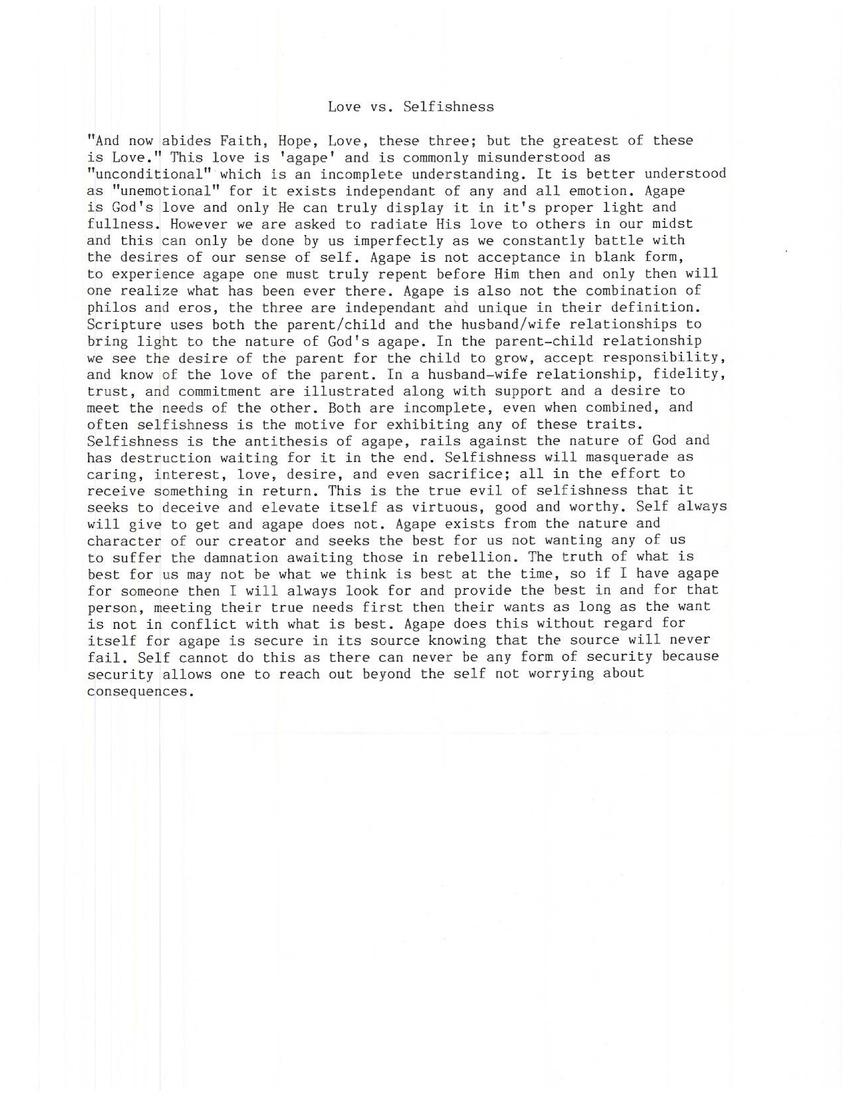
Transcription
Love vs. Selfishness
"And now abides Faith, Hope, Love, these three; but the greatest of these is Love."
This love is agape and is commonly misunderstood as unconditional, which is an incomplete understanding. It is better understood as unemotional for it exists independent of any and all emotion. Agape is God's love and only He can truly display it in its proper light and fullness. However, we are asked to radiate His love to others in our midst and this can only be done by us imperfectly, as we constantly battle with the desires of our self. Agape is not acceptable in blank form; to experience agape, one must truly repent before Him. Then and only then will the one realize what has ever been there. Agape is also not the combination of philos or eros. The three are independent and unique in their definition.
Scripture uses both the parent-child and the husband-wife relationship to bring light to the nature of God's agape. In the parent-child relationship, we see the desire of the parent for the child to grow, accept responsibility, and know the love of the parent. In a husband-wife relationship, fidelity, trust, and commitment are illustrated along with support and a desire to meet the needs of the other. Both are incomplete, even when combined, and often selfishness is the motive for exhibiting any of these traits.
Selfishness is the antithesis of agape, rails against the nature of God and has destruction waiting for it in the end. Selfishness will masquerade as caring, interest, love, desire, and even sacrifice; all in the effort to receive something in return. This is the true evil of selfishness, that it will give to get and agape does not. Agape exists from the nature and character of our creator and seeks the best for us, not wanting any of us to suffer the damnation awaiting those in rebellion.
The truth of what is best for us may not be what we think is best at the time. So if I have agape for someone, then I will always look for and provide the best in and for that person, meeting their true needs first then their wants, as long as the want is not in conflict with what is best. Agape does this without regard for itself, for agape is secure in its source, knowing that the source will never fail. Self cannot do this as there can never be any form of security because security allows one to reach out beyond the self, not worrying about consequences.
Other posts by this author
|
2013 apr 24

|
2012 dec 30

|
2012 dec 10

|
2012 nov 11

|
2012 oct 21

|
2012 jul 10

|
More... |


Replies